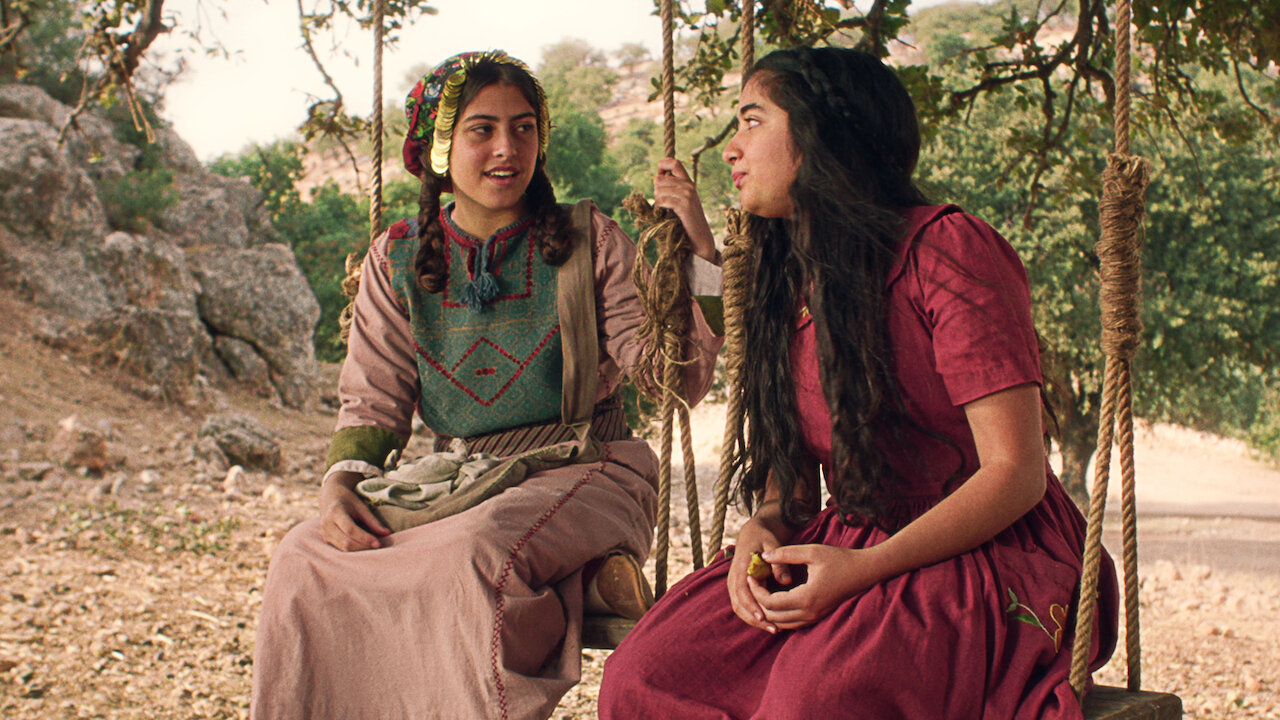Farha: Heartrending tale of Palestinian resilience

Farha centers on the experiences of a 14-year-old girl whose father locked her in a storage closet during the Nakba, in 1948
Since its release last year, Farha, the debut film by Jordanian film-maker Darin Sallam, has been shown at several film festivals around the world, gaining acclaim all around, not just for the subject chosen, which has long been forgotten by most of the world, but which continues to impact millions of Palestinians every day. Sallam has also won plaudits for the way he has handled the sensitive issue.
Farha centers on the experiences of a 14-year-old girl whose father locked her in a storage closet during the Nakba, in 1948, which led to the ethnic cleansing and uprooting of around 700,000 Palestinians by the military of the newly-created Israel State. Over the days, as Al-Nakba unfolds Farha the horrors unfold through a small hole in the wall and crack in the door. As days pass, she transforms from a spirited 14-year-old who dreamt of going to school into a shell of her former self.
The film’s pace is one of its most compelling aspects. Time moves excruciatingly slowly after Farha is confined to the closet to protect her from armed Zionist militias. Through his handling of the actors and camera, Sallam manages to make the viewers feel every moment of Farah’s stress, fear, and anxiety. Despite the slow pace, the film is gripping as it leaves the viewers keen to find out what happens next as you see even the most insignificant actions become magnified in significance.
Farha’s thirst becomes palpable as she tries to drink from a pickle jar, desperate for water, after having been locked up for days. One can also feel the tension in her bladder as she frantically searches for a place to urinate. One can feel her choking on the odour of the gas used by Zionist militias to clear Palestinian homes. One can also sense her anxiety as she gets her first period, while locked up.
The theme of survival, separation and longing serves as the film’s foundation. As the village is under siege by colonial forces, Farha refuses to flee without her father, even if it means staying trapped in a simple room for an extended period of time without basic necessities, and it is implied that her father was killed while protecting his village and its people. Farha, ends up in Syria as a refugee and never sees her father again.
The film’s slow pace, combined with the deliberate inclusion of the narrative, allows the viewers to immerse themselves in Farha’s experience and consider the gravity of what Farha is exposed to and what she experiences.
One of the film’s most compelling aspects is its cinematography by Lebanese Cinematographer Rachel Aoun which manages to capture the story in a very constrained space without showing any disturbing visuals or going into the complexities of the Israeli-Palestinian conflict, bringing a powerful, emotional, and human story to life. The meticulously designed set and props depicting Palestinian life prior to Al-Nakba provide a sense of realism as the tension and uncertainty increase with the passage of time.
Karam Taher as Farha understood the complexities of playing Farha and transitioned from little girl to fierce survivor and Ashraf Barhoum moulds into the character of a dutiful father and responsible village headman.
While the film was well-received by Palestinian audiences, its release in Israel sparked outrage, with several Israeli officials publicly condemning the production of Farha. In response to its screening by OTT platform, Netflix, there has reportedly been a coordinated campaign online to bring down the film’s ratings and a social media campaign encouraging people to cancel their Netflix subscriptions. Sallam, and Jordanian producers Deema Azar and Ayeh Jadaneh, have accused Israel of waging a disinformation campaign against their film.









